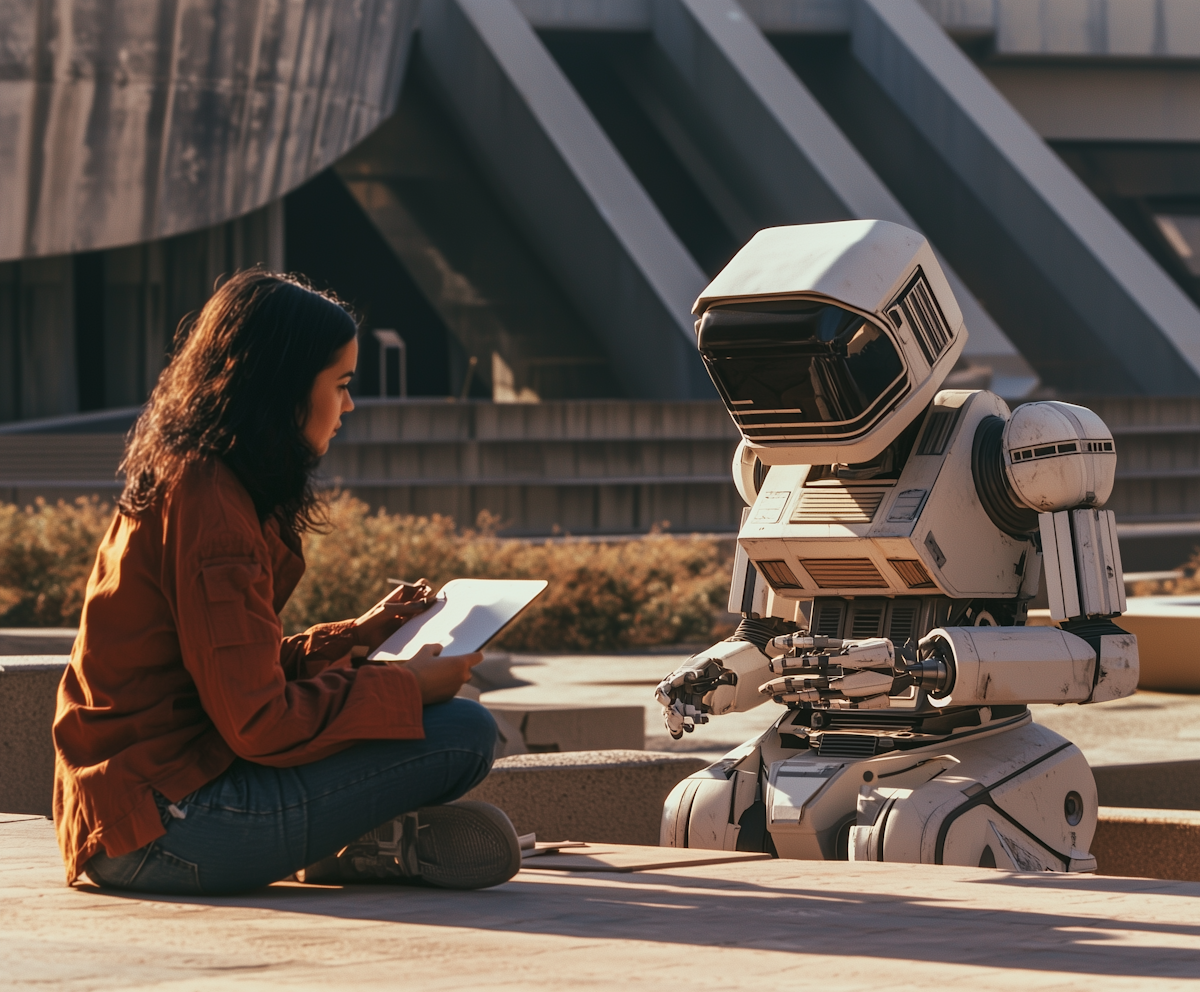Why AI is reshaping the future of HR Tech

As AI continues to transform sales, marketing, product development, and finance, HR is no longer the exception. The age of intelligent, responsive, human-centered HR tech has arrived. And for those building the platforms behind it—wellness tools, engagement platforms, people analytics systems—it’s both a challenge and a massive opportunity.

A quiet revolution is happening across HR tech.
It’s not just about smarter automation or better dashboards. It’s about a fundamental shift in what HR platforms are expected to deliver—and how artificial intelligence is changing the way we understand people, personalize experiences, and prove business value.
As AI continues to transform sales, marketing, product development, and finance, HR is no longer the exception. The age of intelligent, responsive, human-centered HR tech has arrived. And for those building the platforms behind it—wellness tools, engagement platforms, people analytics systems—it’s both a challenge and a massive opportunity.
Here’s why the shift is happening, how it’s already taking shape, and what platform builders need to know to stay ahead.
From administrative tools to intelligent systems
The early promise of HR tech was scale: digitize forms, track data, streamline workflows. And it worked. HR platforms today handle everything from recruitment pipelines to learning paths to hybrid scheduling with impressive efficiency.
But now the expectations are changing.
Today’s HR buyers don’t just want tools that store data or push reminders. They want platforms that can:
- Help managers detect burnout before attrition
- Personalize wellness and development paths at scale
- Turn feedback into clear action
- Make sense of how teams are feeling, and why
- Show measurable impact on engagement, retention, and performance
In short, they want HR tech to do what AI does best: analyze, predict, personalize, and optimize—without increasing admin load or survey fatigue.
Why now? Three forces driving AI adoption in HR Tech
1. The people challenge has become a business challenge
Retention, productivity, mental health, inclusion—these aren’t just HR issues anymore. They’re board-level priorities. And when people problems become business problems, the tools used to solve them come under a different level of scrutiny.
AI-powered HR solutions help shift from reactive response to proactive strategy—making them more aligned with what CFOs and CEOs now expect.
2. HR data has outgrown manual analysis
From survey responses and behavioral data to feedback logs and engagement metrics, HR teams are sitting on vast, often fragmented data sets. AI can synthesize that information and surface patterns that humans alone would miss—especially across thousands of employees.
This turns data from a reporting tool into a strategic lever.
3. The Bar for employee experience has been raised
In hybrid and distributed work models, check-ins are fewer. Culture moments are decentralized. Listening has become harder—but more important than ever. Employees now expect tools that understand their experience and personalize support in real time.
AI makes this possible, without increasing the burden on teams or managers.
Where AI is already transforming HR Tech
So what does this actually look like in product terms?
Here are six fast-emerging use cases where AI is making HR platforms smarter, more adaptive, and more valuable:
1. Talent intelligence
AI is reshaping how organizations source, assess, and develop talent. From resume parsing and skill matching to future role forecasting, AI systems are being built into recruitment and development platforms to streamline decision-making.
Platforms that integrate this intelligence allow clients to:
- Reduce bias in hiring
- Accelerate time-to-fill
- Create internal mobility paths based on skill trends
For HR tech providers, this is one of the most mature and demanded areas of AI integration.
2. Hyper-personalized learning and development
AI enables learning systems to adapt in real time: surfacing training based on role, goals, behavior, and even personality data.
Instead of static content libraries, platforms are evolving into dynamic coaches. AI recommends next steps, reminds users to revisit key concepts, and nudges behavior change—not just completion.
For product leaders, this adds long-term engagement hooks and higher ROI clarity for L&D buyers.
3. Conversational interfaces and virtual coaches
AI-powered chatbots and assistants are now helping HR platforms deliver support that’s fast, confidential, and scalable.
From benefits explanations to mental health check-ins, these tools meet employees where they are, reducing admin burden while increasing access.
As LLMs improve, these conversational tools will become standard UX for modern HR stacks.
4. Predictive analytics for attrition and risk
One of the most requested features from enterprise HR buyers is the ability to anticipate team risks—before they show up in turnover or survey scores.
AI can analyze trends in sentiment, performance, or behavior to flag emerging issues: team disengagement, DEI misalignment, burnout hotspots.
This makes HR tech not just reactive, but forward-looking—and far more strategic in the eyes of leadership.
5. Well-being diagnostics and analytics
A fast-emerging category in AI-driven HR is well-being measurement. New tools now allow platforms to analyze workplace well-being by surfacing key dimensions such as
- Burnout
- Motivation
- Resilience
This enables platforms to offer a real-time, team-level view of well-being, without long surveys or invasive tracking. For wellness providers, this means finally having the ability to measure impact before and after an intervention. For engagement platforms, it turns feedback into diagnostics.
Though still relatively new, this category is becoming a key differentiator for HR platforms that want to support performance and culture in a more meaningful, measurable way.
6. Workforce planning and organizational design
Some of the most advanced AI systems in HR are now being used to model workforce shifts: which roles are at risk of redundancy, where demand is growing, and how teams should evolve to meet future business needs.
This blends people data, business data, and predictive modeling, putting platforms at the center of strategic planning conversations.
What this means for HR tech builders
If you're building platforms for people teams—whether it’s engagement, wellness, analytics, or culture—this wave of AI transformation isn’t optional.
It’s already changing buyer expectations.
Platform integrators, product leaders, and ecosystem strategists now need to ask:
- What are our clients expecting AI to do for them in 6 months? In 18?
- How can we add intelligence without adding complexity or burden to our users?
- Which emerging AI use cases map to our product vision—and offer modular integration?
- How can we build trust into every AI-driven capability, from privacy design to explainability?
The role of trust and ethics in AI Adoption
It’s worth pausing here. Because as AI takes on more people-facing decisions, HR leaders are demanding more than just functionality. They want:
- Ethical AI frameworks that respect privacy and autonomy
- Transparency around how algorithms interpret data
- Explainability in outputs—not black-box predictions
- Optionality in how insights are surfaced or applied
HR tech providers who prioritize trust and clarity will gain a lasting edge—especially among enterprise buyers.
From hype to Infrastructure
AI in HR is quickly becoming more than a feature and becoming infrastructure.
Soon, it will be assumed that your platform can analyze, recommend, adapt, and predict. The differentiators will be how you do it:
- With ethical intelligence
- With actionable outputs
- With integrations that make your ecosystem smarter
- With a human-centered lens
For platform builders, the next 12–18 months will be decisive. Integrators that adopt AI intelligently—across talent, culture, and wellness domains—won’t just compete. They’ll define the next generation of HR technology.
Better well-being starts with better insight
Explore practical tips, expert advice, and real-world use cases to help your teams thrive.










